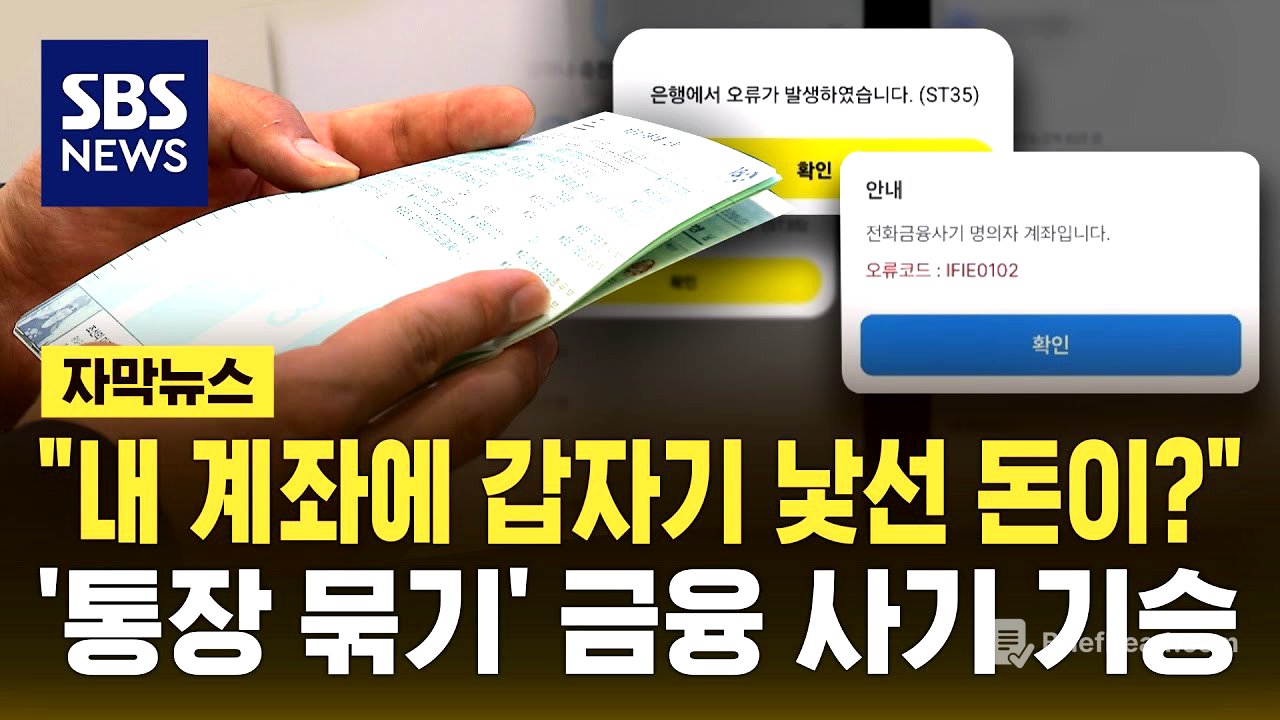TLDR;
This video from SBS News reports on the rise of "bankbook-asking" scams in South Korea, where criminals exploit the voice phishing account suspension system to freeze victims' accounts. The report highlights the difficulties victims face in unfreezing their accounts, the lack of clear guidance and support from financial institutions and law enforcement, and the loopholes in existing laws designed to protect victims. The key points include:
- Scammers falsely report victims' accounts as being involved in voice phishing, leading to immediate freezing.
- Victims struggle to navigate the complex process of proving their innocence and unfreezing their accounts.
- Law enforcement and financial institutions often lack sufficient knowledge or resources to effectively address these scams.
- Existing laws have loopholes that allow scammers to continue their activities, and there is a lack of clear guidance for victims.
The Rise of Bankbook-Asking Crime [0:00]
The video begins by highlighting the increasing prevalence of bankbook-asking scams, where individuals' accounts are frozen after money is deposited into them. One victim recounts receiving a threatening call demanding money, followed by a text message confirming the suspension of their account. This person expresses frustration over being penalized despite having done nothing wrong, facing a three-year ban on opening new bank accounts.
Exploitation of the Account Payment Suspension System [0:38]
The report explains that bank account freezing is a fraudulent tactic that takes advantage of the account payment suspension system, which was originally created to protect victims of voice phishing. Scammers falsely report an account as being involved in voice phishing, causing the bank to immediately freeze it, even if the report is untrue. Victims find themselves unable to conduct financial transactions and are often left in the dark about what is happening.
Difficulties in Unfreezing Accounts [1:10]
The video details the challenges victims face when trying to unfreeze their accounts. While it is possible to unfreeze an account by proving that one is a victim of bankbook fraud, the process is complicated and difficult to navigate. Victims report being passed between different organizations, including banks, financial supervisory agencies, and law enforcement, with no clear path to resolution. In some cases, scammers even exploit the system by threatening victims and demanding money in exchange for falsely reporting that they made a false report, which would unlock the account.
Victim Experiences and Lack of Support [1:59]
The report shares the experiences of individuals who have fallen victim to bankbook inquiry scams. One victim describes receiving an unwanted deposit of 500,000 won from the perpetrator, which led to the disabling of all financial transactions except for deposits. Despite submitting evidence to the bank, police, and Financial Supervisory Service, their account remained frozen for months. Another victim recounts being threatened by the scammer, who demanded the suspension be lifted and even the police advised them to simply use a different account.
Loopholes in the Law and Systemic Flaws [2:54]
Experts point out loopholes in the existing laws designed to protect victims of these scams. The video highlights the lack of clear guidance and support available to victims, even on official websites. While the number of accounts suspended due to fraud is increasing, the number of accounts specifically involved in bankbook-asking crimes remains undetermined. Victims may also be deprioritized in investigations because they have not suffered direct financial damage, adding to their anxiety and frustration.









